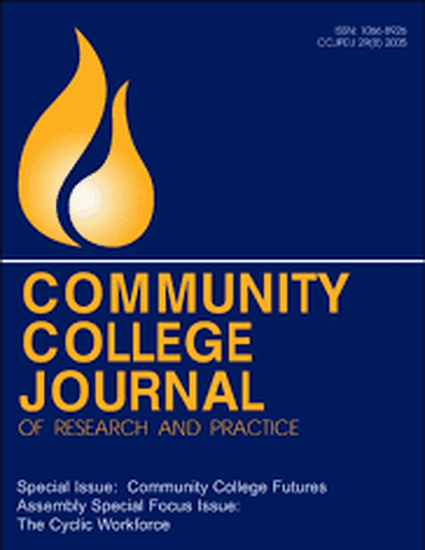
Article
Community College Student Well-Being and Implications for Care
Community College Journal of Research and Practice
(2021)
Abstract
The objective of this study was to examine differences across developmental groups of community college students to compare anxiety, depression, positive coping, and negative coping with particular focus on emerging
adults (ages 18–28) experiencing quarter-life crises. A total of 807 students participated in this study and were divided into three groups (Group 1: ages 18–28, Group 2: ages 29–39, and Group 3: ages 40–67). This quantitative study utilized MANOVA, Kruskal-Wallis, and Mann Whitney U tests to analyze group differences in anxiety, depression, positive coping, and negative coping. Group 1 differed significantly from Group 2 and Group 3, scoring higher on both depression and negative coping. Group 3 community college students also differed significantly from the Group 1 and Group 2, scoring lower on anxiety and higher on positive coping. Implications for community college program planning and community college counselors are discussed.
Disciplines
Publication Date
February 17, 2021
DOI
10.1080/10668926.2021.1883487
Citation Information
Laura Martin and Lynn Bohecker. "Community College Student Well-Being and Implications for Care" Community College Journal of Research and Practice (2021) ISSN: 1066-8926 Available at: http://works.bepress.com/Dr-Bohecker/42/
